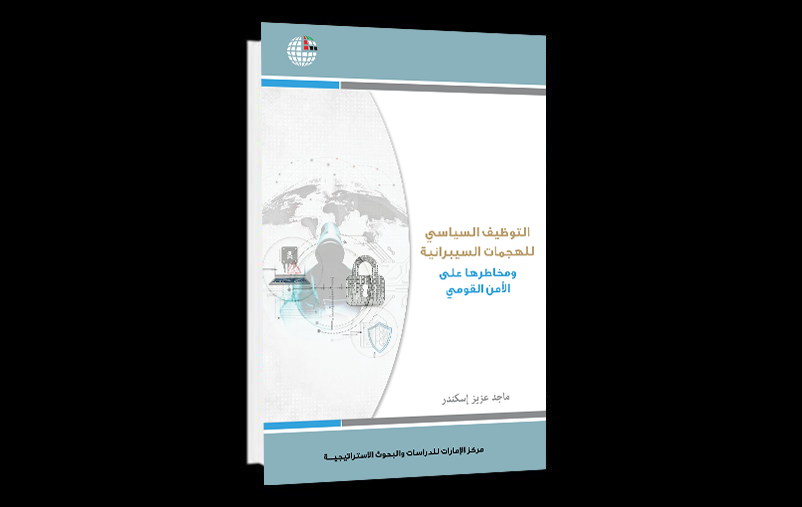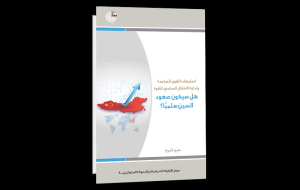Although traditional military threats remain part of the global landscape, they have declined in recent years, giving way to new non-traditional threats such as international terrorism, transnational crime, civil wars, and cyber threats, which are the most dangerous and complex.
These threats are rapidly evolving and their offensive capabilities and international consequences are growing.
This book sheds light on the dangerous implications of non-peaceful uses of cyberspace and their impact on national security.
It explores how countries employ cyber attacks and their tools to achieve different political goals, often involving non-state actors.
The book also discusses the cyber arms race and the strategies of technologically advanced countries in facing cyber threats and protecting their national security.
The objective of the book
The book aims to analyze the threats arising from non-peaceful uses of cyberspace, with a focus on the patterns of political exploitation of cyber attacks and their tools, and the resulting security risks. It examines the reasons behind the increasing politically motivated attacks, particularly in the past decade, as well as the prominent international efforts to counter them.
Sections of the book
The book is divided into 3 main chapters. The first chapter analyzes the relationship between cyberspace and national security, highlighting how the security of cyberspace has become a priority in national security.
It addresses the threats faced by critical infrastructures, information security, and electronic services provided by governmental and private entities.
Furthermore, this chapter discusses national security threats associated with the dark web and cyber terrorism, while explaining the different trends in cyber attacks’classifications, their characteristics, attribution challenges, and their most significant weapons.
The second chapter explores the mechanisms of employing cyber tools and cyberattacks to achieve political goals, such as exerting pressure on political systems, overthrowing them, influencing electoral processes, or exposing and embarrassing certain governments. The book elaborates on the use of these tools and attacks in the fields of intelligence and electronic diplomacy.
The third chapter examines strategies for dealing with cyber threats in major cyber powers: the Russian Federation, China, and the United States, as well as cyber strategies and policies in some countries in the Middle East and the European Union.
Moreover, it discusses the efforts of international and regional organizations to confront cyber threats, while introducing important relevant agreements and initiatives and assessing their effectiveness.
The book concludes that the increase in politically motivated cyber attacks in the past decade is a result of the chaotic nature of interactions in cyberspace, the absence of international institutions or mechanisms to monitor states’ behaviour in this space, and the characteristics of cyberspace that encourage states to launch these attacks and employ them to achieve their political goals.
Furthermore, it highlights the existence of undisclosed vulnerabilities that states have and may use when necessary to achieve their foreign policy objectives.
International Treaty
The book emphasizes the importance of exerting more serious international efforts to establish an international treaty that prohibits cyber weapons and regulates the behaviour of states in cyberspace.
This treaty would help bridge the gaps between major cyber powers regarding disputed issues in this field, such as cyber governance, cyber sovereignty, and human rights in cyberspace.
Recommendations
The book proposes a set of recommendations to address cyber threats at the national level. It emphasizes that cybersecurity experts anticipate an increase in these attacks in the coming years, especially after the COVID-19 pandemic, which has significantly increased reliance on cyberspace for various tasks and procedures.
Moreover, the severity of cyber weapons used in different attacks is expected to escalate, as many countries seek to possess and activate cyber deterrence.
Therefore, it is appropriate for the Arab League or the United Nations to initiate a charter of commitment to reduce the proliferation of cyber weapons. This would serve as a preliminary step towards establishing a global treaty for cybersecurity.
The book also emphasizes the importance of conducting further studies and research in the field of cybersecurity, with a focus on monitoring and studying potential future attacks.
This includes identifying the weapons and tools used, assessing their development and impact, and understanding the motives of the perpetrators. Additionally, it is important to monitor the cyber offensive capabilities of non-state actors, such as terrorist and criminal organizations, especially their ability to exploit the dark web and encrypted virtual currencies, as well as other advanced technologies that pose a significant threat to national security.
Author Information
Majed Aziz Iskander
Researcher and Public Relations Specialist
The Egyptian Cabinet’s Information and Decision Support Center
Book Information
Book Title: The Political Exploitation of Cyber Attacks & Their Risks on National Security
Author: Majed Aziz Iskander
Publisher: Emirates Centre for Strategic Studies and Research
Publication date: 2023














